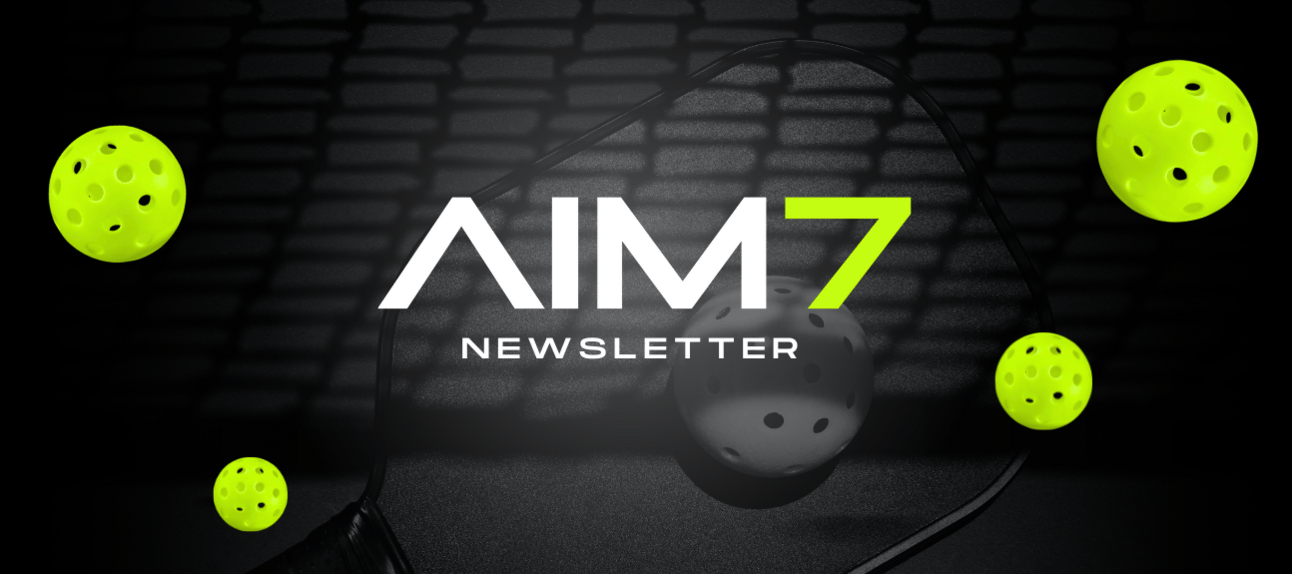- AIM7
- Posts
- Coffee and Caffeine - A Performance Hack
Coffee and Caffeine - A Performance Hack
Plus, top recovery techniques to beat muscle pain and stiffness

Caffeine & Coffee: 7 Common Questions & Misconceptions
If you're a coffee enthusiast, a caffeine lover, or a skeptic, this article is for you!
I’ve summarized the findings from two recent article published in the Journal of the International Society of Sports Nutrition and the European Journal of Preventive Cardiology.
There is some really good stuff:
Question: Does coffee impact your lifespan?
Answer: Yes, it might! A study from the UK Biobank suggests that drinking coffee in moderation—especially 4-5 cups per day of caffeinated coffee—may be the sweet spot for heart health. This level of intake showed the greatest reduction in arrhythmia risk and significant protection against cardiovascular disease (CVD). Meanwhile, drinking 2-3 cups daily was also beneficial, with ground coffee drinkers seeing up to a 27% reduction in all-cause mortality. Decaf and instant coffee provided similar, though slightly less pronounced, benefits. So whether you enjoy a moderate amount or a bit more, regular coffee drinking could support both heart health and longevity.
Question: Does caffeine dehydrate you at rest?
Answer: When you regularly drink caffeine and have about 250-300 mg per day (around 3 cups of coffee), it won't make you dehydrated. But if you have more than 500 mg of caffeine (about 5 cups of coffee), it might make you pee more.
Question: Does caffeine dehydrate you during exercise?
Answer: When you exercise, things like how much you sweat, how much water you drink, and your genes affect your hydration more than a normal amount of caffeine.
Question: Can too much caffeine kill you?
Answer: It's very rare, but if you have more than 5 grams of caffeine (around 50 cups of coffee), it could be deadly.
Question: Does caffeine effect males and females differently?
Answer: Studies have mixed results, but caffeine seems to help both sexes perform better in sports.
Question: Does caffeine work for everyone?
Answer: People respond to caffeine differently, but it's probably rare for someone to not have any performance improvement from caffeine.
Question: Does waiting 1.5-2.0 hours after waking to consume caffeine help you avoid the afternoon "crash?"
Answer: There's no evidence that waiting to have caffeine 1.5-2 hours after waking up prevents an afternoon "crash" or changes your body's normal daily rhythm of the hormone cortisol.
Sorry, Andrew, you didn’t get this one right...

If you want to capitalize on the health and performance benefits of caffeine and save money, try BUBS Naturals organic coffee. It’s the world’s first Whole 30 approved coffee. It’s micro-roasted for freshness, and tested for mold and aflatoxins. Use the code AIM725 to save 25% on BUBs coffee and supplements!
Use code: AIM725 to save 25%
Pickleball Recovery 101:
Bounce Back Like a Pro!

So you’ve just smashed it on the pickleball court, but now your muscles feel like they’ve been through a cheese grater.
That’s totally normal! Within 24-48 hours after an intense exercise session, many athletes experience Delayed Onset Muscle Soreness (DOMS). This is your body going into repair mode!
Characterized by muscle pain, stiffness, and reduced range of motion, DOMS can slow you down and increase injury risk.
But don’t worry— this blog will teach you the best recovery hacks to help you bounce back faster and stronger than ever.
If you’re short on time, here’s a quick list of science-backed recovery tools we love!
Massage Guns: Provides targeted muscle relief and reduces soreness.
Foam Rollers: Relieves muscle tension by increasing blood flow.
Compression Therapy: Enhances blood flow to speed up recovery.
Cold Therapy (Ice Baths): Reduces inflammation and muscle pain.
Infrared Saunas: Boosts circulation for deeper recovery.
Stretching: Enhances flexibility and muscle health.
Breathwork: Lowers stress and improves relaxation.
The Hydration Mistake Costing You Pickleball Matches | Electrolytes, Sports Drinks, & more with Pratik Patel

In the latest Blueprint podcast, Pratik Patel, former Director of Performance Nutrition for the New York Giants, joins Dr. Erik Korem to discuss the role hydration plays in your pickleball performance.
Drawing from his extensive experience with elite athletes, Pratik breaks down the science of hydration and electrolyte balance.
Discover:
Why water alone isn't enough for optimal performance
The perfect pre-match hydration protocol for peak readiness
How to calculate your fluid needs during intense tournaments
The surprising cognitive benefits of proper hydration
Post-match recovery strategies to keep you at the top of your game
Understanding the Yips: Causes and Prevention

If you've ever watched a player struggle with the yips, you know how tough it can be to witness. And experiencing it for yourself is even worse!
Keep in mind - anyone can fall victim to this phenomenon without a solid mental game.
So, what exactly are the yips? They refer to a sudden and involuntary loss of fine motor skills and coordination, often driven by anxiety and overthinking, especially in skills that once felt automatic.
What triggers this loss of motor control? Research shows that extreme negative reactions to failure play a key role, as it leads to overthinking and performance anxiety.
How do you fix the yips? Release, reset, refocus! This simple framework will reduce performance anxiety by keeping you focused on what’s important now - the next point!
Release: Let go of tension or past mistakes; visualize flushing them away.
Reset: Take a deep breath to bring yourself back to the present.
Refocus: Ask yourself, "What's important now?" and direct your attention there.
How much time can you commit to warming up before playing pickleball? |


